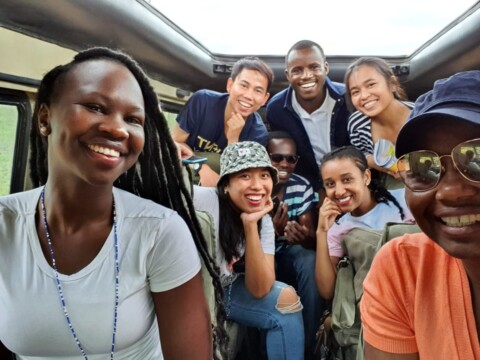The Minister of Education, Dr. Moruf Olatunji Alausa, has announced that President Bola Tinubu has approved the transformation of Yaba College of Technology (YABATECH) into a university.
Dr. Alausa made this disclosure during his visit to the institution, where he inaugurated and inspected key projects and engaged with staff and industry stakeholders. He acknowledged that the management, staff, and students had long awaited the conversion.
“The rector mentioned that they have been anticipating this change. While I wasn’t fully prepared to announce it today, I can confirm that after discussing the matter with President Tinubu, he quickly approved it. I am now awaiting the official memo and necessary procedures from the relevant authorities,” Alausa stated.
He highlighted YABATECH’s readiness for this transition, noting that the institution boasts over 200 staff members with doctoral degrees across various fields. According to him, this upgrade reflects the President’s commitment to education and the empowerment of Nigerian youth.
Dr. Alausa stressed the need to shift from conventional white-collar job training to essential disciplines such as Technical and Vocational Education (TVE) and Science, Technology, Engineering, Mathematics, and Medical Sciences (STEMM). He noted that many tertiary institutions have failed to equip graduates with practical life skills, resulting in a workforce that lacks the technical expertise necessary for industrial development.
He explained that this aligns with President Tinubu’s directive for a nationwide emphasis on technical training over the coming years. He also expressed concern over the high unemployment rate, which he attributed to graduates lacking hands-on skills.
“With the government’s strong commitment to fostering a robust manufacturing and service sector, Nigeria’s economic future depends on building a skilled workforce in these critical fields,” he said.
The minister highlighted the disparity between the country’s growing population and the limited number of students in higher education. He revealed that despite over two million students applying for admission annually, fewer than one million are enrolled in federal institutions, with less than 200,000 pursuing technical education.
To address these challenges, Alausa proposed expanding existing courses, integrating innovation, and offering online training programs that provide international certifications in fields such as software development, artificial intelligence, and machine learning.
“These short-term courses, which can be completed in as little as six to eight months, would enable students to secure high-paying jobs with international companies, particularly in global tech hubs like Singapore and Hong Kong,” he explained.
He noted that Nigerian graduates in these fields could earn between $3,000 and $4,000 per month, providing them with financial independence and reducing the pressure to migrate in search of better opportunities.
Alausa emphasized the need to reposition higher education institutions as innovation hubs capable of generating revenue through intellectual property, industry partnerships, and alumni networks.
He encouraged YABATECH to collaborate with private investors to address challenges such as accommodation shortages, stressing that such partnerships would help ease the financial burden on the government.
“Government alone cannot do it,” he stated, highlighting the importance of visionary leadership and long-term planning in shaping the future of Nigeria’s education system.
In response, the Rector of YABATECH, Dr. Abdul Ibraheem, expressed enthusiasm about the minister’s visit, stating that many of the institution’s projects align with global best practices. He emphasized that with over 200 PhD holders, YABATECH is more than qualified to become a university.
“While we aspire to become a university, we don’t just want to be another university. We aim to be a University of Technical and Vocational Education (TVE), dedicated to innovation, problem-solving, and national development. We have the manpower and need the government’s full support in achieving this goal,” Ibraheem said.
The Chairman of the Governing Council, Prof. Funso Isola Afolabi, also highlighted key initiatives at YABATECH, including advancements in technical education, collaborative research, e-learning models, and the establishment of its Epe campus.
With the government’s backing and strategic policy shifts, Nigeria’s education landscape is poised for transformation, ensuring a future that benefits students and the nation at large.





